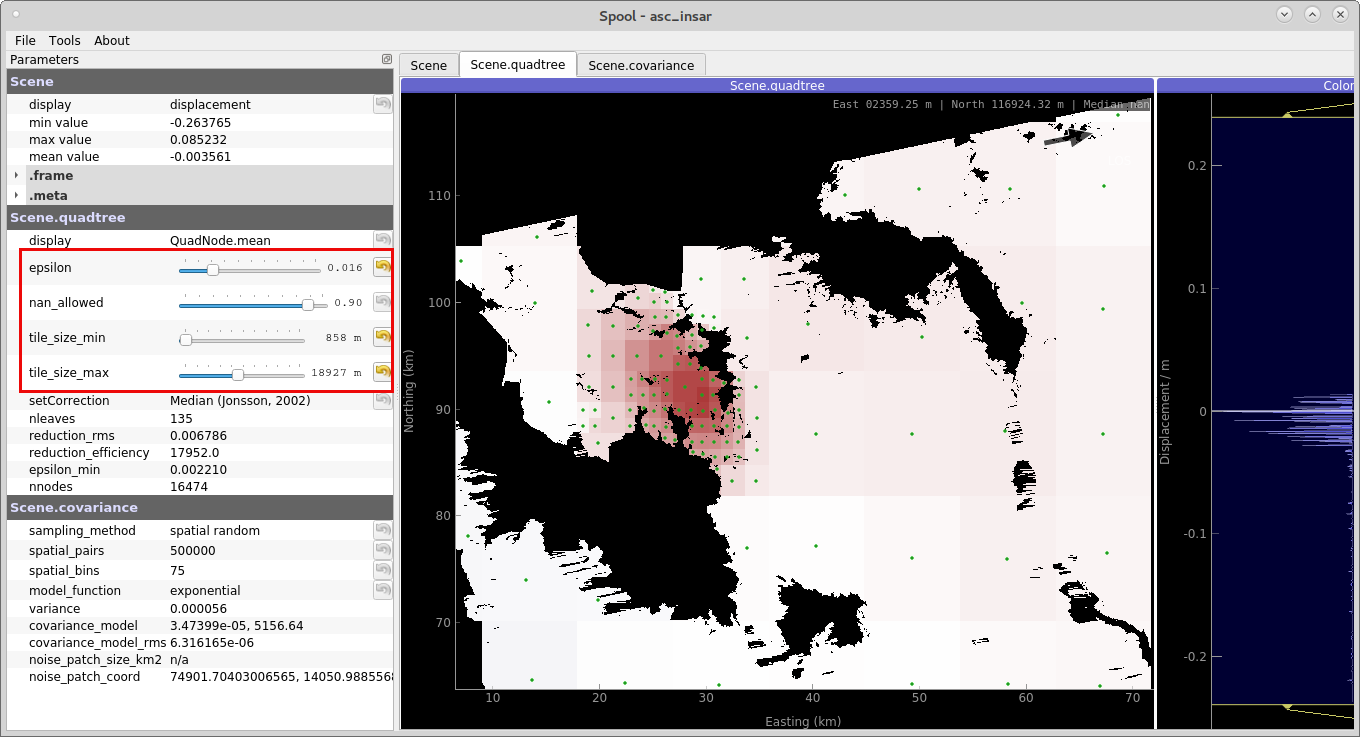It seems that a data file is missing...
pytest test/test_covariance.py
/home/pierre/.pyenv/versions/3.7.1/lib/python3.7/site-packages/nbformat/notebooknode.py:4: DeprecationWarning: Using or importing the ABCs from 'collections' instead of from 'collections.abc' is deprecated, and in 3.8 it will stop working
from collections import Mapping
/home/pierre/.pyenv/versions/3.7.1/lib/python3.7/site-packages/jsonschema/compat.py:6: DeprecationWarning: Using or importing the ABCs from 'collections' instead of from 'collections.abc' is deprecated, and in 3.8 it will stop working
from collections import MutableMapping, Sequence # noqa
=============================================================================================== test session starts ===============================================================================================
platform linux -- Python 3.7.1, pytest-4.0.2, py-1.7.0, pluggy-0.8.0
rootdir: /home/pierre/tmp/kite, inifile:
plugins: xonsh-0.8.5, ipynb-1.1.0
collected 6 items
test/test_covariance.py ..F... [100%]
==================================================================================================== FAILURES =====================================================================================================
_____________________________________________________________________________________ TestCovariance.test_covariance_parallel _____________________________________________________________________________________
self = <test.test_covariance.TestCovariance testMethod=test_covariance_parallel>
def test_covariance_parallel(self):
self.sc.quadtree.epsilon = .07
self.sc.quadtree.tile_size_max = 11000
cov = self.sc.covariance
cov.config.adaptive_subsampling = True
@benchmark
def calc_exp():
return cov._calcCovarianceMatrix(method='full', nthreads=0)
@benchmark
def calc_exp_cos():
cov.setModelFunction('exponential_cosine')
return cov._calcCovarianceMatrix(method='full', nthreads=0)
res = calc_exp()
> ref = num.load('test/covariance_ref.npy')
test/test_covariance.py:60:
_ _ _ _ _ _ _ _ _ _ _ _ _ _ _ _ _ _ _ _ _ _ _ _ _ _ _ _ _ _ _ _ _ _ _ _ _ _ _ _ _ _ _ _ _ _ _ _ _ _ _ _ _ _ _ _ _ _ _ _ _ _ _ _ _ _ _ _ _ _ _ _ _ _ _ _ _ _ _ _ _ _ _ _ _ _ _ _ _ _ _ _ _ _ _ _ _ _ _ _ _ _ _ _ _ _
file = 'test/covariance_ref.npy', mmap_mode = None, allow_pickle = True, fix_imports = True, encoding = 'ASCII'
def load(file, mmap_mode=None, allow_pickle=True, fix_imports=True,
encoding='ASCII'):
"""
Load arrays or pickled objects from ``.npy``, ``.npz`` or pickled files.
Parameters
----------
file : file-like object, string, or pathlib.Path
The file to read. File-like objects must support the
``seek()`` and ``read()`` methods. Pickled files require that the
file-like object support the ``readline()`` method as well.
mmap_mode : {None, 'r+', 'r', 'w+', 'c'}, optional
If not None, then memory-map the file, using the given mode (see
`numpy.memmap` for a detailed description of the modes). A
memory-mapped array is kept on disk. However, it can be accessed
and sliced like any ndarray. Memory mapping is especially useful
for accessing small fragments of large files without reading the
entire file into memory.
allow_pickle : bool, optional
Allow loading pickled object arrays stored in npy files. Reasons for
disallowing pickles include security, as loading pickled data can
execute arbitrary code. If pickles are disallowed, loading object
arrays will fail.
Default: True
fix_imports : bool, optional
Only useful when loading Python 2 generated pickled files on Python 3,
which includes npy/npz files containing object arrays. If `fix_imports`
is True, pickle will try to map the old Python 2 names to the new names
used in Python 3.
encoding : str, optional
What encoding to use when reading Python 2 strings. Only useful when
loading Python 2 generated pickled files in Python 3, which includes
npy/npz files containing object arrays. Values other than 'latin1',
'ASCII', and 'bytes' are not allowed, as they can corrupt numerical
data. Default: 'ASCII'
Returns
-------
result : array, tuple, dict, etc.
Data stored in the file. For ``.npz`` files, the returned instance
of NpzFile class must be closed to avoid leaking file descriptors.
Raises
------
IOError
If the input file does not exist or cannot be read.
ValueError
The file contains an object array, but allow_pickle=False given.
See Also
--------
save, savez, savez_compressed, loadtxt
memmap : Create a memory-map to an array stored in a file on disk.
lib.format.open_memmap : Create or load a memory-mapped ``.npy`` file.
Notes
-----
- If the file contains pickle data, then whatever object is stored
in the pickle is returned.
- If the file is a ``.npy`` file, then a single array is returned.
- If the file is a ``.npz`` file, then a dictionary-like object is
returned, containing ``{filename: array}`` key-value pairs, one for
each file in the archive.
- If the file is a ``.npz`` file, the returned value supports the
context manager protocol in a similar fashion to the open function::
with load('foo.npz') as data:
a = data['a']
The underlying file descriptor is closed when exiting the 'with'
block.
Examples
--------
Store data to disk, and load it again:
>>> np.save('/tmp/123', np.array([[1, 2, 3], [4, 5, 6]]))
>>> np.load('/tmp/123.npy')
array([[1, 2, 3],
[4, 5, 6]])
Store compressed data to disk, and load it again:
>>> a=np.array([[1, 2, 3], [4, 5, 6]])
>>> b=np.array([1, 2])
>>> np.savez('/tmp/123.npz', a=a, b=b)
>>> data = np.load('/tmp/123.npz')
>>> data['a']
array([[1, 2, 3],
[4, 5, 6]])
>>> data['b']
array([1, 2])
>>> data.close()
Mem-map the stored array, and then access the second row
directly from disk:
>>> X = np.load('/tmp/123.npy', mmap_mode='r')
>>> X[1, :]
memmap([4, 5, 6])
"""
own_fid = False
if isinstance(file, basestring):
> fid = open(file, "rb")
E FileNotFoundError: [Errno 2] No such file or directory: 'test/covariance_ref.npy'
../../.pyenv/versions/3.7.1/lib/python3.7/site-packages/numpy/lib/npyio.py:384: FileNotFoundError









